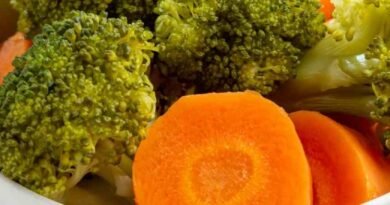
Sonbahar Meyveleri Hangileridir?
Fall fruits, such as apples, pears, and grapes, are rich in fiber, vitamins, and minerals. Especially high in vitamin C, they strengthen the immune system and protect against illnesses during seasonal transitions. Their fiber content regulates digestion, supports heart health, and promotes a sense of fullness, assisting with weight management. Additionally, their antioxidant properties help safeguard cells from free radicals.
What Are Fall Fruits?
Fall fruits are known for their rich vitamin and mineral contents that boost the immune system. One of the standout fruits available in autumn is the pomegranate. Recognized as a temperate fruit, pomegranate thrives in cooler temperatures. Available from fall through winter, its durability allows it to be stored in the kitchen for an extended period. It is packed with vitamins A, B, C and minerals like calcium, iron, and potassium. Pomegranates promote bone health and are also beneficial for the heart, eyes, and skin. Another fall fruit is the mandarin, a member of the citrus family. Consuming mandarins from fall until the end of winter boosts the immune system due to their high vitamin C content and aids in treating iron deficiency by enhancing absorption.
Another fall fruit is the quince, a sturdy fruit that can be consumed in autumn. Rich in vitamins A, C, and E, as well as minerals like potassium, sodium, and phosphorus, quince aids in digestion. It benefits vascular and heart health while providing a sense of fullness. Quince can help delay signs of aging by rejuvenating cells, making it a great choice for fall consumption. Grapefruit, another fall fruit, is also an excellent source of vitamin C, rich in vitamins B5 and A, and contains minerals such as calcium, iron, and magnesium. Grapefruit aids the immune system and can assist in weight loss. Other autumn fruits include:
What Are the Benefits of Fall Fruits?
Fruits like pomegranate, quince, mandarin, and grapefruit offer numerous benefits, extending from skin cells to gut flora. Additionally, grapes are another incredibly beneficial fruit.
With grapes, you can fulfill many of the body’s vitamin and mineral requirements.
- This fruit supports heart and vascular health, reduces the risk of heart diseases, lowers cholesterol, and helps maintain regular blood flow.
- Grapes are known for their ability to fight harmful cells and support circulation.
- The anthocyanins in grapes boost immunity, increasing resistance to diseases.
- They strengthen bones and, thanks to their proanthocyanidins, promote bone formation, preventing age-related bone loss.
- Grapes also have beneficial effects on the skin, combating oxidative stress that may arise from external factors.
- Moreover, grapes contribute positively to mental health and can help prevent constipation.
The persimmon, another fruit that grows in the fall, is an excellent source of vitamin C, greatly benefiting the immune system.
- It helps protect against diseases and is recommended for people of all ages due to its high nutritional value.
- The fruit maintains gut health and is beneficial for those experiencing digestive issues due to its high fiber content.
- Its fibrous structure facilitates easier digestion of meals and increases beneficial gut bacteria.
- This fruit, high in antioxidants, helps combat cancer risk and free radicals with a significant amount of catechin.
- It also reduces diabetes risk and is known for its low glycemic index.
- Persimmons stabilize blood sugar levels by preventing rapid spikes.
- Rich in vitamin A, they are beneficial for age-related eye diseases.
- Persimmons are recommended to prevent potential issues with the retina and cornea.
- They cleanse and nourish the skin, helping eliminate toxins from the body.
- With their cell-renewing properties, they help prevent wrinkles around the lips.
How to Consume Fall Fruits?
You can create vinegar with grapes, allowing the benefits of grapes to extend throughout the year. Apples, popular in the fall, can be used to make cakes. Additionally, you can prepare a refreshing drink from red berries, such as cornelian cherry syrup, to enjoy with meals or on its own. Marmalade can be made from rose hips, complementing your breakfast nicely and can be used in pastries or desserts as needed.
Frequently Asked Questions About Fall Fruits
How should fall fruits be stored?
If you’re storing pomegranates outside the refrigerator, keep them in a dark, non-humid place away from sunlight. The sturdy quince, while resistant, can spoil quickly in hot, humid conditions. Therefore, it’s better to place quinces in a tightly sealed bag and keep them in the fridge. For long-term storage of persimmons, you can use the freezer. Store them in freezer bags for prolonged preservation.
Do fall fruits help with weight loss?
Fruits like pears, apples, pomegranates, grapefruits, and kiwis provide prolonged feelings of fullness, aiding in weight loss. With their high fiber content, these fruits contribute to the proper functioning of the digestive system.
Can diabetics consume fall fruits?
Fall fruits, being rich in fiber, help regulate blood sugar levels during snack times. You can consume grapes, persimmons, or quinces about two hours after a main meal as a snack. Portions of these fruits should be determined by a dietitian according to individual sugar levels and blood sugar responses. It’s healthier to consume fresh fruit juice rather than pre-packaged juice, as the latter often lacks pulp and thus has a higher glycemic index. Therefore, it is beneficial to enjoy these fruits blended in smoothies, not exceeding 100 ml, to retain the fiber content.



